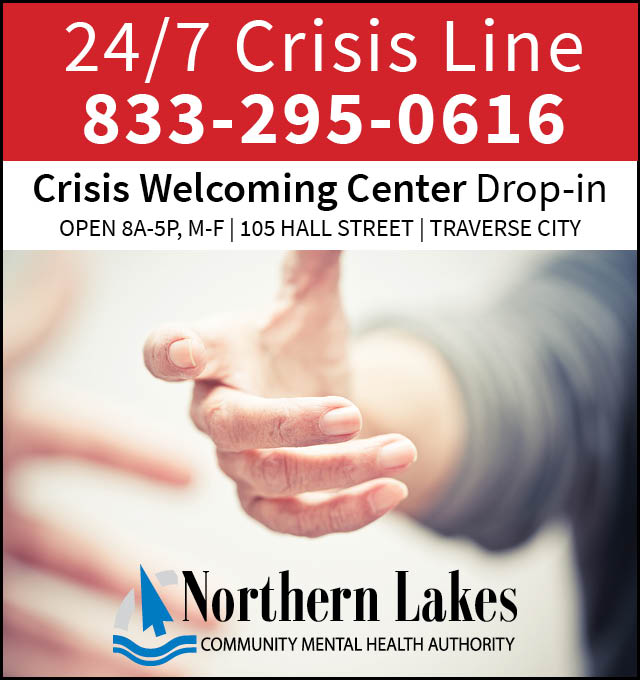
A Bigs Impact: How Big Brothers Big Sisters Is Growing Its Reach
By Craig Manning | Nov. 3, 2023
Another fall, another major push to bring dozens – if not hundreds – of new volunteers to Big Brothers Big Sisters of Northwestern Michigan (Bigs). According to Kris Hoxie, marketing and development specialist for Bigs, the nonprofit is “serving 400 children, 400 mentors, and 400 families each year,” and is aiming to bring that number up to 500 by the end of 2024.
Bigs Executive Director Cecilia Chesney is optimistic about hitting that goal. In the past year, she says, a slew of locals have come out of the woodwork to express interest in mentoring kids. When The Ticker touched base with Chesney last August – Bigs was only serving around 325 kids in the community. Hitting 500 by New Year’s would represent a 54 percent increase in less than a year and a half.
One big hurdle to growing the mentor base, Chesney says, is that only a fraction of the people who inquire about volunteering end up as Big Brothers or Big Sisters.
“If I’m giving a presentation [about Bigs] and then you email me and say, ‘I want to be a Big Brother,’ that’s what we call an inquiry,” Chesney tells The Ticker. “And what the data tells us is that, on average, it takes three inquiries to get one application.”
Even beyond the application, there’s an in-depth process of background checks, interviews, references, and other steps, all designed to protect the child from an imperfect match. It's a lot of due diligence, and it isn't just about safety.
“Sometimes, it’s just not the right timing,” Chesney explains. “If you just got divorced, and now you’re trying to fill a hole by being a Big, that’s not a good time. Our goal is to keep you, minimally, for a year with the child. If we match you with a child and three months later you walk away, that does more damage than if you never volunteered, because lot of our kids experience disappointments with people not following through on a consistent basis. Our goal is for our mentors to be that one steady piece in a child’s life, that one sense of normalcy. And so, we’re really, really careful about when we do facilitate a match.”
The result is a tricky math equation: “If we need 300 mentors, we need about 1,000 people to inquire.” she says.
But Bigs is finding more traction with its recruitment efforts lately. The pandemic-era volunteer shortage that affected organizations across all sectors has largely subsided. And Bigs has adopted a handful of new strategies that have proven extremely effective.
According to Chesney, Bigs has had “a 90 percent success rate” generating inquiries with socials – informal after-work events where every existing Bigs mentor is encouragd to bring at least one friend who might have an interest in volunteering. Compared to the presentations that Chesney gives to local community groups like Rotary, the socials provide a “low-key atmosphere” where prospective volunteers often feel more comfortable asking questions. The strategy has been especially effective for recruiting male mentors, an area where Bigs has struggled in recent years.
There are other new or evolving tactics, too. One, Chesney says, involves encouraging local high school students to sign up as mentors.
“That strategy isn’t necessarily new, but historically, we’ve mostly aimed for those straight-A, National Honor Society students who need to have community service,” Chesney says. “Now, I’m a proponent of reaching out to that middle-of-the-road kid, because I think mentoring can really help them as much is it helps the little ones. For a high school student to see the positive change they can personally make in an elementary student’s life, that is so rewarding and so good for building their self-confidence and self-worth.”
Another growing area of Bigs’ volunteer efforts is the “duo program,” which allows two adults to sign up together to share mentorship responsibilities for one Little. The idea is to take some of the pressure off the situation for mentors, while also giving Littles two new positive influences instead of just one.
Such is the tale of Jeff Lange and Terri Ray, a pair of lifelong friends who joined forces about year ago to mentor a little girl named Gabby. As Lange tells the story, he put in his application expecting that he’d be a solo Big Brother. “Then Bigs contacted me and said, ‘I think we have somebody that’s perfect for you, but it’s a little girl,’” Lange recalls. “And traditionally, Bigs doesn’t pair men with little girls.”
Instead, Bigs pitched the idea of Lange being a part of a duo. Ray jumped aboard, and a new match was born.
Alexandria Peacock, Gabby’s mom, says the duo model has proven to be the perfect fit for her daughter – who, pre-Bigs, was struggling with a speech impediment and being bullied at school. That all started to change as Gabby spent time with her new mentors – especially when Ray, who is a well-known radio personality at northern Michigan’s WKLT, took Gabby to work and put her on the air.
“Gabby was reporting the weather and talking to the people who were calling in,” Peacock says. “And it was the cutest thing. She was a little nervous at first, but then she was so happy and excited. And afterward, she was saying, ‘Hey, can I do that again?’”
Peacock says her daughter has blossomed into someone who “loves school and is making all these new friends,” and who is more confident, more mature, and more comfortable in her own skin than she ever was before. “She is just purely happier, and I think that has a lot to do with Terri and Jeff,” Peacock tells The Ticker.
In fact, Peacock is so pleased with the impact Bigs has had for her daughter that she’s decided to pay it forward.
“I actually just signed up to be a Big,” she shares.
Pictured: Ray and Gabby at KLT.
Comment






